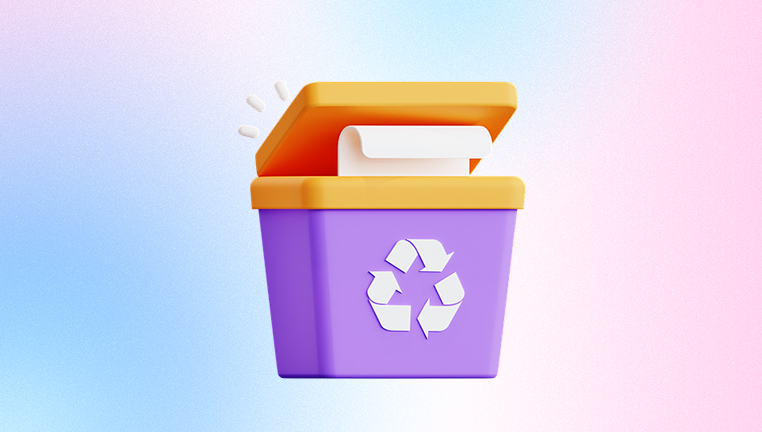Digital Versatile Discs (DVDs) were once the dominant medium for data storage and distribution, used widely for movies, software, music, backups, and personal files. Despite the rise of flash storage and cloud solutions, countless individuals and businesses still rely on DVDs to access or retrieve important information. Unfortunately, DVDs are not immune to damage. Scratches, exposure to heat, moisture, or even age-related degradation can render a disc unreadable. When these issues arise, DVD data recovery services provide a critical solution to salvage lost or inaccessible information.
To understand DVD data recovery, it helps to first grasp the structure of the disc. A DVD consists of one or two polycarbonate layers with a reflective metal layer in between. Data is encoded as microscopic pits on the surface and read by a laser in a DVD player or drive.

There are different types of DVDs:
DVD-ROM: Read-only media used for software, movies, etc.
DVD-R/DVD+R: Recordable discs that can be written once.
DVD-RW/DVD+RW: Rewritable discs that support multiple writing cycles.
MiniDVDs: Smaller-sized discs used in camcorders or handheld devices.
Common vulnerabilities include:
Scratches and abrasions
Cracks or broken discs
Delamination (layers separating)
Dye degradation in burned discs
Exposure to UV light or moisture
The nature and extent of damage greatly influence the success of recovery.
Signs of DVD Data Loss
A damaged or failing DVD often exhibits the following symptoms:
Disk won’t load or is not recognized by the drive
Error messages like “Cyclic Redundancy Check” or “Cannot Read from Disk”
Missing files or folders
Freezing or skipping during playback
Excessive spinning without reading
If you notice any of these symptoms, it’s crucial to stop using the DVD immediately to avoid worsening the damage.
Causes of DVD Data Loss
DVD data loss can result from a wide range of causes, such as:
Physical damage: Scratches and cracks from improper handling or storage.
Chemical exposure: Cleaning agents or adhesives can erode the disc surface.
Heat exposure: Warping or delamination can result from high temperatures.
Moisture: Can lead to mold growth or delamination.
Improper burning process: Discs not properly finalized or written.
Aging: Over time, burned DVDs can deteriorate due to dye breakdown.
Understanding the cause helps technicians choose the appropriate recovery method.
DVD Data Recovery Process
Professional DVD data recovery services follow a comprehensive and carefully executed process. Each case is unique, and technicians customize their approach based on the condition of the DVD and the data it contains.
Initial Assessment The DVD is inspected to identify the type of disc, the extent of the damage, and the type of data stored. This includes evaluating surface scratches, checking for cracks, and determining if the disc spins and is recognized by any drive.
Cleaning and Surface Repair If the DVD has smudges or dirt, a gentle cleaning is performed using lint-free cloths and isopropyl alcohol. For scratched discs, polishing equipment is used to smooth the surface without damaging the data layer.
Imaging the Disc Once the disc is prepared, specialized equipment is used to create a raw image of the data. This protects the original disc from further damage. Imaging tools often retry bad sectors multiple times to maximize data capture.
Data Extraction and Reconstruction Technicians use advanced software to reconstruct file systems, recover fragmented files, and rebuild directory structures. Damaged video or document files may require further repair using format-specific tools.
Quality Assurance and Delivery The recovered data is verified for completeness and accuracy. Clients are then provided with the data on a new DVD, USB drive, or cloud download, depending on preference.
Common Recovery Tools and Techniques
DVD data recovery involves a variety of specialized tools:
Disc polishing machines: Remove surface scratches.
CloneCD, IsoBuster, CDRoller: Software tools for raw imaging and sector-by-sector recovery.
Hex editors: For manual file repair.
Data carving software: Extracts known file types from raw data.
Optical drives with high error tolerance: These drives are better at reading problematic discs.
Limitations of DVD Recovery
Despite the best efforts, some DVDs may be beyond recovery. Limitations include:
Severe physical cracks that sever data tracks
Deep scratches in the data layer
Extensive delamination
Total dye layer degradation in burned discs
Discs burned with obscure or proprietary file systems
In such cases, only partial data recovery may be possible.
Do-It-Yourself (DIY) vs. Professional Services
There are many DIY methods touted online, such as toothpaste polishing or banana peels. While some may help with very mild scratches, they often risk further damage. Professionals use precise equipment and techniques that reduce the risk of permanent loss.
DIY software can sometimes retrieve data from lightly damaged DVDs, but these tools often fail when dealing with:
Sector corruption
File system damage
Deep scratches
Cracked discs
For valuable or irreplaceable data, professional recovery is strongly recommended.
Preventive Measures for DVD Longevity
While no medium lasts forever, proper care can extend the life of DVDs and reduce the need for data recovery:
Handle by the edges to avoid fingerprints
Store vertically in protective cases
Keep away from heat and sunlight
Avoid labels or stickers that can unbalance the disc
Use archival-quality DVDs for important data
Duplicate important discs and migrate data to newer formats
Regular backups to hard drives or the cloud can also protect against data loss.
Industries and Use Cases for DVD Recovery
DVDs have been widely used across sectors. Recovery is often required in:
Media production: Video footage, master copies
Legal and law enforcement: Evidence storage
Healthcare: Patient scans and imaging
Education: Lecture recordings, student projects
Corporate archives: Software, presentations, reports
Home users: Photos, videos, backups
These use cases underscore the ongoing relevance of DVD recovery services.
Why Choose Professional DVD Recovery Services?
Professional recovery services offer numerous benefits:
Cleanroom environments: Prevent contamination
Trained technicians: Knowledge of file systems and disc structures
Advanced tools: Increase chances of successful recovery
Data confidentiality: Secure handling and storage
Transparent pricing: Clear quotes and "No Data, No Fee" policies
Choosing a reputable service ensures a higher probability of data recovery and peace of mind.
Drecov Data Recovery: Trusted Experts in DVD Recovery
Drecov Data Recovery offers industry-leading DVD data recovery services. With over a decade of experience and a team of certified specialists, Panda has recovered thousands of DVDs from personal users and corporate clients.
Key benefits of choosing Panda include:
Free diagnostic evaluation
Safe and secure recovery process
Compatibility with all DVD formats (DVD-R, DVD+RW, MiniDVD, etc.)
Recovery of videos, documents, audio, software, and more
Support for both Windows and Mac file systems
Emergency and expedited service options
Panda employs a meticulous process, starting with a thorough analysis of the disc and proceeding with non-invasive techniques to retrieve every possible byte of data.
Customer Testimonials
"I thought our wedding video was gone forever after the disc cracked. Panda recovered every minute. Incredible service!" — Amanda T., Toronto
"Our archived legal files were unreadable from age. Panda recovered over 95% of the contents, saving us from disaster." — Jacob L., Chicago
"Old family photos were stuck on a scratched DVD. Panda brought them back to life. Worth every penny." — Priya N., San Francisco
These success stories highlight the real-world impact of effective DVD recovery services.
Cost of DVD Data Recovery
The price of DVD data recovery depends on various factors:
Extent of physical damage
Amount of data to recover
Type of DVD and file format
Need for advanced reconstruction or repair
Typical costs range from $75 to $350 per disc. Most providers, including Panda, offer a free evaluation and a transparent quote before proceeding.
Emergency Services and Turnaround Time
For urgent needs, Drecov Data Recovery offers expedited services with turnaround times as fast as 24 hours. Standard recovery usually takes 3–7 business days, depending on the complexity.
The Future of DVD Recovery Services
As DVDs become less common, recovery services evolve to meet changing demands. While the volume of DVD recoveries may decline, the value of data stored on them remains high. Services are also expanding to Blu-ray and other optical formats.
Additionally, many providers now offer:
Digital migration services
Long-term storage solutions
Cloud integration for recovered data
This evolution ensures that valuable data stored on legacy formats continues to be accessible in the digital age.




